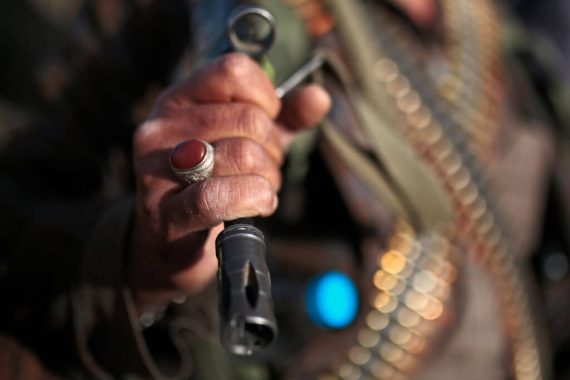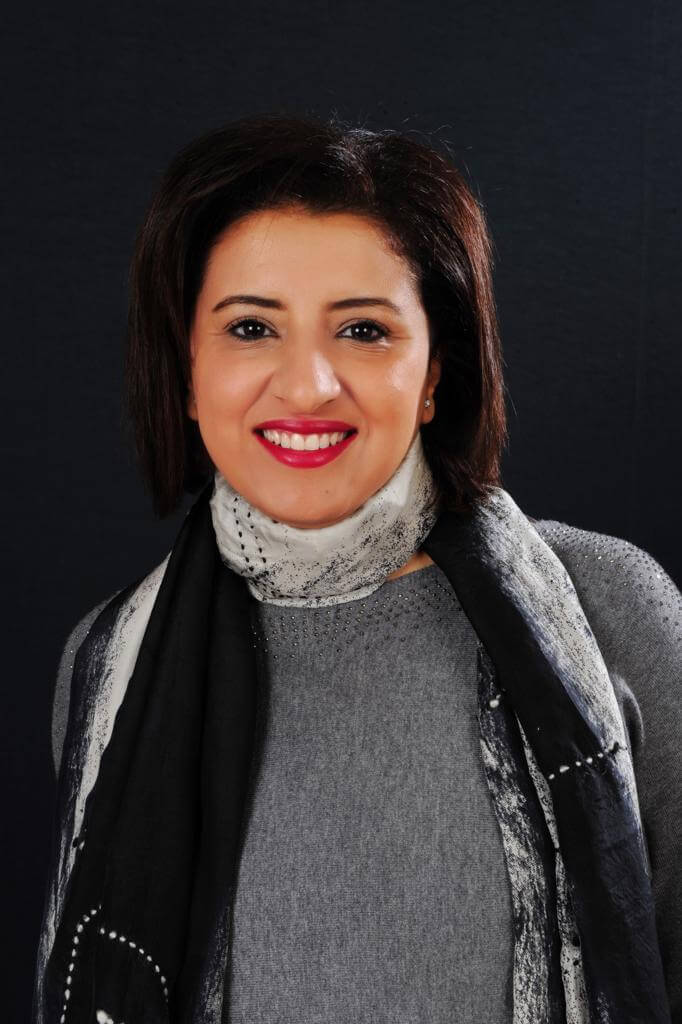Yemen is witnessing one of the worst humanitarian crises of the 21st century with a civil war that has been going on for the past seven years. Alongside multiple local and regional actors at play, there are new diplomatic initiatives such as the U.S. special envoy introduced by the Biden administration, whose efficacy in bringing the conflicts to an end is yet to be proven. Nihan Duran of Politics Today interviewed Maysaa Shuja al-Deen, a Yemeni researcher and non-resident fellow at the Sana’a Center for Strategic Studies in Yemen on the current state of war in the country and the prospects of a sustainable peace.
Q. What is the current situation of the civil war in Yemen?
When we talk about Yemen today, we are not talking about one entity nor two entities, divided into south and north, as was the case before 1990. There are several entities in Yemen both in the south and north, and the biggest power in the north is the Houthis. They control a big part of the north of Yemen, which means that they have more than half of the population under their control.
In the north, there are also other powers such as the Muslim Brotherhood-affiliated Al-Islah party controlling Taiz and Ma’rib, the latter being a rich governorate, now besieged by the Houthis. On the western coast of the north, we have the military commander Tareq Saleh, the nephew of the former president Ali Abdullah Saleh.
Q. What is the picture of the south of Yemen?
We have an even more complicated picture in the south, given that there are more actors than in the north, such as the UAE-backed Southern Transitional Council (STC). STC is controlling the interim capital Aden and the western governorates Dhale and Lahj and parts of Abyan. Shabwah is a tribal governorate that is neighboring Ma’rib and is affiliated the president Hadi and Islah party has presence there. Coast of Hadhramaut is controlled by Hadhramaut elite which is supported by the UAE and affiliated the STC. Hadhramaut valley is still under the government forces control.
Al-Mahrah region is under the control of local powers. Alongside different local actors, there are also regional actors involved in Yemen, such as Saudi Arabia, Oman and the UAE, who are not aligned and are not very willing to cooperate either.
Q. Alongside these local and regional actors, there are also new diplomatic initiatives such as the U.S. special envoy introduced by the Biden administration. Do you believe that these initiatives are likely to make a difference in resolving ongoing conflicts?
The U.S. policy towards Yemen has changed dramatically after the Biden administration. During the Trump administration, the Yemeni file was completely ignored, but now Yemen is a top priority in Biden’s foreign policy. What is happening now is that Yemen’s war is being considered in connection with the U.S.-Iran Nuclear Deal of 2015, which sees attempts now to be revived.
As we all know, Iran supports the Houthis for Iranians wish to be a powerful regional player and their influence in Yemen gives them a lot of leverage vis-à-vis the West, as we can see in the negotiations for the Nuclear Deal. For Iran, Yemen is the easiest card to be capitulated for a possible concession to Saudi Arabia.
The parties involved in negotiations to end the Yemen war need to understand that one cannot stop this war without addressing the local disputes and disagreements.
Q. In other words, Yemen is the soft spot for the Saudis.
Yes, they can accept the Iranian influence elsewhere, but not in Yemen. The U.S. is now trying to reach a peace settlement between the Saudis and the Houthis. There are also official meetings going on between Iran and Saudi Arabia around regional issues. Though these developments do not necessarily mean Iran will cut through all the relationships with the Houthis, it may put some leverage on the Houthis to accept a peace agreement that recognizes other local parties.
However, what I see right now is that the focus is too much on the regional dimensions of this war, and local dimensions, which are as crucial to consider, are largely overlooked. The parties involved in these negotiations need to understand that one cannot stop this war without addressing the local disputes and disagreements.
Q. How do you think it will be possible to bring the local dimension to the fore in these negotiations?
The U.S. is trying to reach a peace settlement between the Saudis and the Houthis. The idea is that the Houthis can have leverage over the Saudis because the latter represent a state; Saudi Arabia has interests in their relations with the U.S. and the rest of the world. However, this is not the case with the Houthis for many reasons. First, because they are not internationally recognized, and second, they do not have a meaningful economic or political relationship with the world, except with Iran. As a result, the U.S. sanctions applied against some Houthi individuals, such as banning them from traveling or freezing their bank accounts, don’t make any pressure on them as they don’t travel or have bank accounts outside of Yemen.
When we are talking about the Houthis, we need to keep in mind that the status of war is a normal thing for these people. We are talking about a 17-year-old war that started in 2004. They started fighting when they were just kids and teenagers. It is important to understand their mentality, on top of their motivation as a religious group, who believe that they have God’s favor and support in their cause. For this reason, it is very difficult to convince the Houthis to compromise with other parties for the sake of peace.
Q. What about the people of Yemen?
I think the people of Yemen want peace. The general mood is that they are fed up with the war, and more importantly, they are beginning to lose faith in most of the main local powers to bring an end to the situation. They feel this way because of the local powers’ affiliation with the regional players. This has started to create a sentiment among the Yemeni people that these local powers are inadequate actors who are heavily influenced by regional powers, who in turn are using Yemen for their own benefit – regardless of what the Yemeni people want. The same goes with the STC, the Houthis, the Muslim Brotherhood, and others. I feel that most of the Yemeni people have lost trust in these local powers, but they are far from finding other alternatives.
Q. On the other hand, we see in the south of Yemen a desire for a two-state or a two-region solution. What is the motivation behind that?
The south and the north were two different states until the unification in 1990. The Republic in the North, which had represented the capitalist camp, was established in 1962, and when the British withdrew from the south, the Southern state was founded in 1967, which represented the communist camp. However, following the dissolution of the Soviet Union, the desire for unification grew stronger, especially in the south. Yet, we need to note that, although they were united, the army remained divided and they could not agree on the constitution. So, there was a political crisis directly after the unity, and in 1994, a civil war erupted between the south and north. Yet, it is not very easy to refer to the new tension as a dispute between the south and the north in a classical sense.
Q. What do you mean?
During the civil war in 1994, some Islamist groups in the south fought for the government in the north against the socialist party in the south, who were defeated at that time. Whereas this victory made the north the hegemonic power across Yemen, it was received with resentment in the south, where people felt that they were being politically marginalized.
On top of that, after the discovery of the oil resources in the south, they eventually felt they would be better off without the north, who they have felt had neglected and marginalized them right after the 1994 war. Not surprisingly, the Houthis’ invasion of the south of Yemen in 2015 revived the two-decades-old injuries, which made the south feel that they cannot continue, especially with the Houthis controlling the capital in the north, Sanaa.
Recommended
Q. Do you think the southern aspiration to have an independent status is realistic?
We need to highlight that the south is not a single entity. There are different groups that are not united, and this was a huge problem. Internationally as well, we can see that most of the countries are not very supportive of the idea of a separation, because if there is a separation in Yemen, there is the risk that it may encourage the aspirations for secessions in other parts of the region. Therefore, it is not very easy to convince the regional powers of this idea. This is one of the reasons why the U.N. resolutions in Yemen emphasize the unity of the Yemeni state. So, here we have a legal obstacle to southern aspirations to separation.
Q. What other barriers are there for these aspirations?
Another reason why some countries would not support the idea of a two-state solution is related to the sectarian composition of the country. In the north, there is a Zaidi Shia sect under the influence of Iran. Given the circumstances, the large Sunni population in the south balance the situation. This is why the Saudis, who were against the unity during the civil war in 1994, are now in favor of the unity of the Yemeni state, because otherwise they will have the risk of a Shia state at their borders. This is another problematic issue.
I do not know what is the price that Yemen is going to pay under these circumstances, but most of the people now are talking about a federal state or confederal state in Yemen. I think this is the most realistic scenario applicable to the current situation in Yemen.

VIDEO: Explainer: The War in Yemen Explained in 3 minutes
Q. What kind of mechanisms are currently being discussed for an effective power-sharing scenario in Yemen?
When one talks about peace, one definitely means sharing power. However, given the present circumstances, there is no sign of peace or an agreement between the Southern Transitional Council and the government of Hadi until now. Both parties are not serious in proceeding with the requirements of al-Riyadh agreement. This is why we need to understand power-sharing in Yemen as not only at the governmental level, but also at the presidential level.
What I mean by that is, currently, the STC feels that President Hadi has monopolized the decision-making process. Given that Hadi is the legitimate actor who is recognized by the UN resolutions in Yemen, he is the only one who can make decisions, and he makes them without any kind of accountability and transparency. This is why I believe that a transitory presidential council would not only help bring a kind of accountability and transparency to the decision-making processes, but will also make it more collective and inclusive, as well as bring a power balance to the government.
Q. What form and composition would such a presidential council have?
A transitory presidential council would represent all the parties concerned. But I am specifically referring to a technocratic government, unlike what we have now. Currently, people in the government are chosen according to their identity, not according to their profession or expertise. This is why it is not possible to talk about an active representative government in Yemen. Therefore, if, on the one hand, there were a presidential council, in which the representatives are selected in accordance with the identity principle in order to represent all the local and social powers, and on the other hand, the government was to be formed according to people’s professions and qualifications, such a political system would function better.
Q. Do you believe that a transitionary presidential council in Yemen would also help contribute to improving the living conditions of the people?
Yes, definitely, because now the people, who live in the non-Houthi areas are in a much more miserable situation than those living in the Houthi-controlled areas. Their living conditions are very severe, due to the ongoing conflict between the STC and the government. So, I think forming a presidential council to ease such tensions may also be a good place to start improving the living conditions of the people in these areas. Also, the Houthis may be included in this presidential council as well, until we reach another phase in this political process after the war ends – assuming it hopefully does.
At the same time, the existing local councils – not the government or the presidential councils we are talking about – should be given more authorities because they are the ones who are in a daily contact with their communities and can help improve the living conditions of the people. The local councils need to be enhanced and associated with the presidential council. Though this is not a stable supplementation, at least we can minimize the suffering of people as a result of this war.

VIDEO: Who are the Houthis in Yemen?
Q. Given the current situation of war, what do you think are the prospects for peace in Yemen?
I think, any peace process in Yemen should follow the principle of inclusivity. Inclusivity of not only two parties, the government of Hadi and the Houthis, but all other local actors that have emerged during these seven years of war. A sustainable peace requires, first and foremost, the political will of political powers. The people of Yemen cannot attain peace without the political will of the STC, the Houthis, or whoever is there. This should also include enhancing the local governance in general because they are more in touch with the real situation there. But without the necessary political will, it is impossible reach peace in Yemen.






